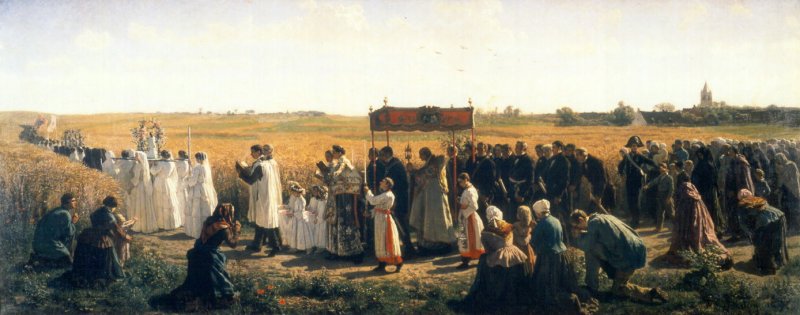
This 1967 Rogation procession in England to pray for the crops would have originally involved “beating the bounds” to mark the boundaries of the parish.
Throughout Europe on Ascension Day (the 40th day after Easter, always a Thursday) there was an ancient custom of “beating the bounds” to mark the limits of each parish (community). There were also processions through the local fields on the 3 days called “Rogation” that same week; sometimes the “beating of the bounds” was combined with the Rogation processions.
In England, the custom of beating the bounds goes back at least as far as the Anglo-Saxon period. In the days before maps and written title deeds a knowledge of the physical boundaries of property was very important. So the custom grew up of walking the boundaries, stopping at intervals to strike boundary stones to ‘mark’ the bounds. (Originally, probably it was the boys and young men that were beaten so that they would remember where the boundaries of the parish were located.) The practice was often linked to Rogation Days, the Monday-Tuesday-Wednesday before Ascension set aside by the Church for prayers for the crops; walking the boundaries of the parish was an obvious opportunity to “beat the bounds” and pray for the crops at the same time.
In England, between 1598 and 1834, the care of the poor was the responsibility of each parish church. It was the local parish (community) that had to relieve the needy, apprentice children and care for the destitute. The responsibility was for all those settled in the parish; this included illegitimate children, which sometimes led to parish officials trying desperately to remove pregnant unmarried women to another parish so that they would not be responsible for the baby! The Poor Laws provided another reason for ensuring that everyone knew the boundaries of the parish. The inhabitants needed to know which authorities to apply to for help, and the authorities to know which inhabitants were entitled to that help.
There are still processions to “beat the bounds” in Oxford as well as in London!

Breton Blessing of the Wheat at Artois (1857)
